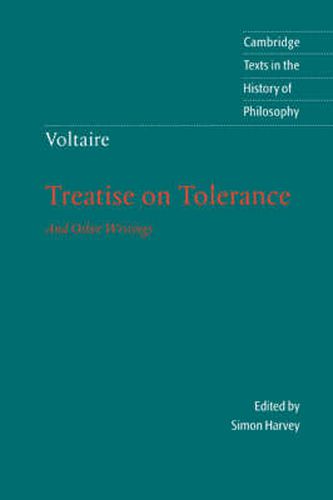Readings Newsletter
Become a Readings Member to make your shopping experience even easier.
Sign in or sign up for free!
You’re not far away from qualifying for FREE standard shipping within Australia
You’ve qualified for FREE standard shipping within Australia
The cart is loading…






Voltaire is widely known as the author of a literary masterpiece, Candide, while his reputation as a thinker rests largely on his Philosophical Letters and Philosophical Dictionary. He is equally renowned as a critic of the forces of superstition and fanaticism, and a champion of freedom of thought and belief. The works presented here, in a new English translation, are among the most important and characteristic texts of the Enlightenment, and bring together all three aspects of Voltaire: the writer, the doer and the philosophe. Originating in Voltaire’s campaign to exonerate Jean Calas, they are works of polemical brilliance, informed by his deism and humanism and by Enlightenment values and ideals more generally. The issues which they raise, concerning questions of tolerance and human dignity, are still highly relevant to our own times. This volume presents them together with an introduction by Simon Harvey and useful notes on further reading.
$9.00 standard shipping within Australia
FREE standard shipping within Australia for orders over $100.00
Express & International shipping calculated at checkout
Voltaire is widely known as the author of a literary masterpiece, Candide, while his reputation as a thinker rests largely on his Philosophical Letters and Philosophical Dictionary. He is equally renowned as a critic of the forces of superstition and fanaticism, and a champion of freedom of thought and belief. The works presented here, in a new English translation, are among the most important and characteristic texts of the Enlightenment, and bring together all three aspects of Voltaire: the writer, the doer and the philosophe. Originating in Voltaire’s campaign to exonerate Jean Calas, they are works of polemical brilliance, informed by his deism and humanism and by Enlightenment values and ideals more generally. The issues which they raise, concerning questions of tolerance and human dignity, are still highly relevant to our own times. This volume presents them together with an introduction by Simon Harvey and useful notes on further reading.